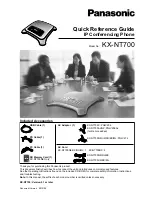
iv
Introduction
Section 1
Potentially Explosive Atmospheres -
Turn your phone
OFF when in any area with a potentially explosive atmo-
sphere and obey all signs and instructions. Sparks in such
areas could cause an explosion or fire resulting in bodily
injury or death.
Areas with potentially explosive atmospheres are often,
but not always clearly marked. They include fueling areas
such as gasoline stations, below deck on boats, fuel or
chemical transfer or storage facilities, vehicles using lique-
fied petroleum gas (such as propane or butane), areas
where the air contains chemicals or particles (such as
grain dust or metal powders), and any other area where
you would be normally advised to turn off your vehicle
engine.
Aboard Aircraft -
Regulatory agencies prohibit the use of
conventional wireless phones while an aircraft is in flight.
These RF signals may interfere with the operation of equip-
ment aboard the aircraft.
Driving -
Check the regulations on the use of wireless telephones
in the areas where you drive. Always obey them. Also, if using
your phone while driving, give full attention to driving. Driving
safely is your first responsibility. Pull off the road and park before
making or answering a call if driving conditions so require.
Vehicles -
RF signals may affect improperly installed or inad-
equately shielded electronic systems in motor vehicles.
Caution -
The Global Positioning System (GPS) is operated by
the government of the United States of America, which is solely
responsible for its accuracy and maintenance. The system is sub-
ject to changes that could affect the accuracy and performance of
all GPS equipment. Although this device is a precision electronic
NAVigation AID (NAVAID), any NAVAID can be misused or misin-
terpreted and therefore, become unsafe.
To reduce the risk of unsafe operation, carefully review
and understand all aspects of this manual and thoroughly practice
operation prior to actual use. When in actual use, carefully
compare indications from this device to all available navigation
sources including information from other NAVAIDS, visual sight-
ings, maps, etc. For safety, always resolve any discrepancies before
continuing navigation.
Warnings and Precautions
NvTlkGSMManual copy.indd iv
12/2/2002, 8:41:40 AM







































